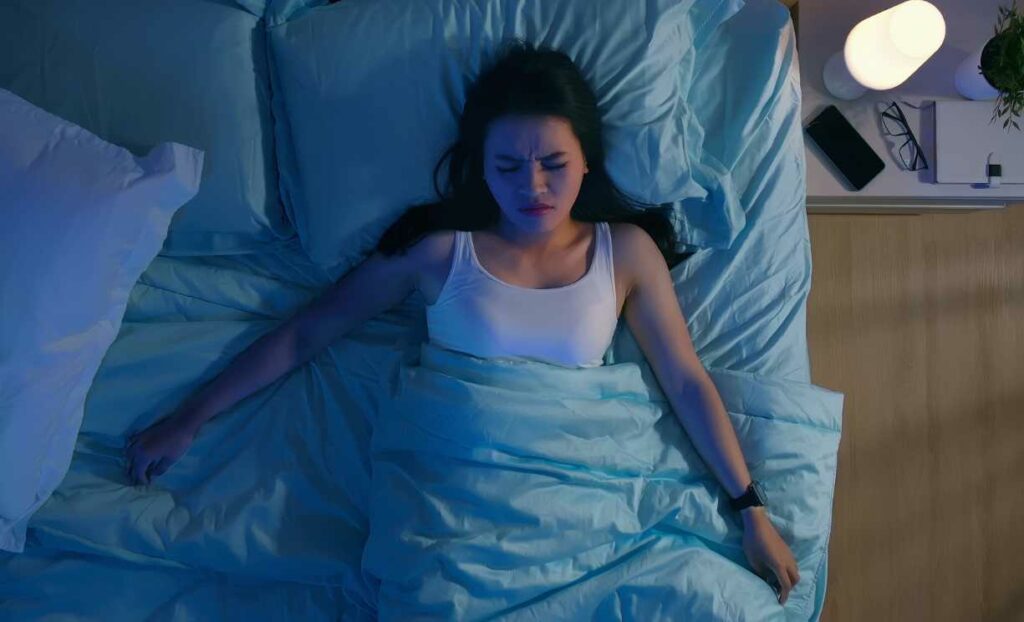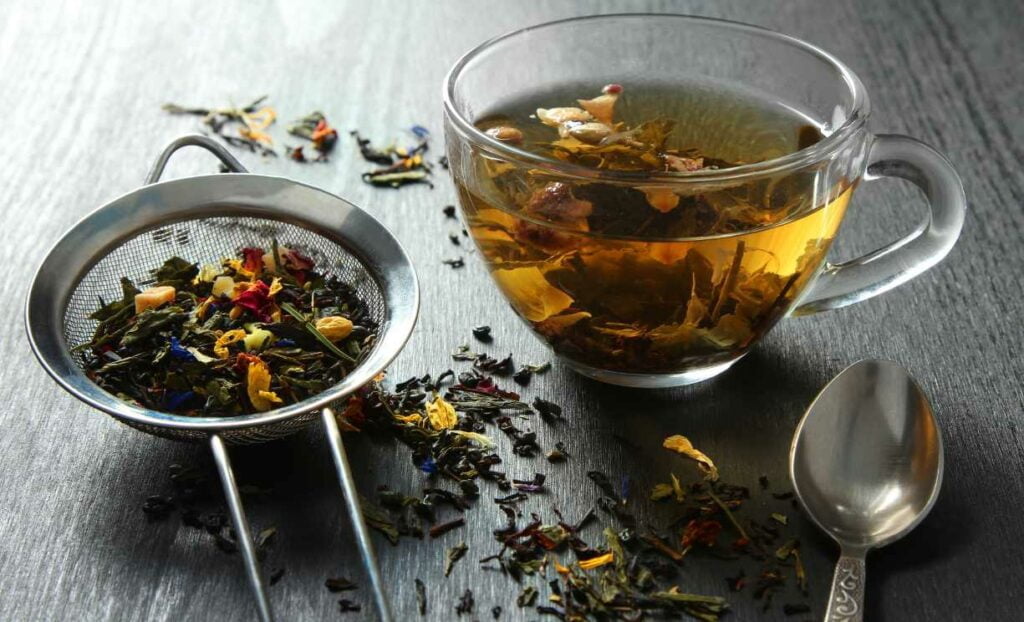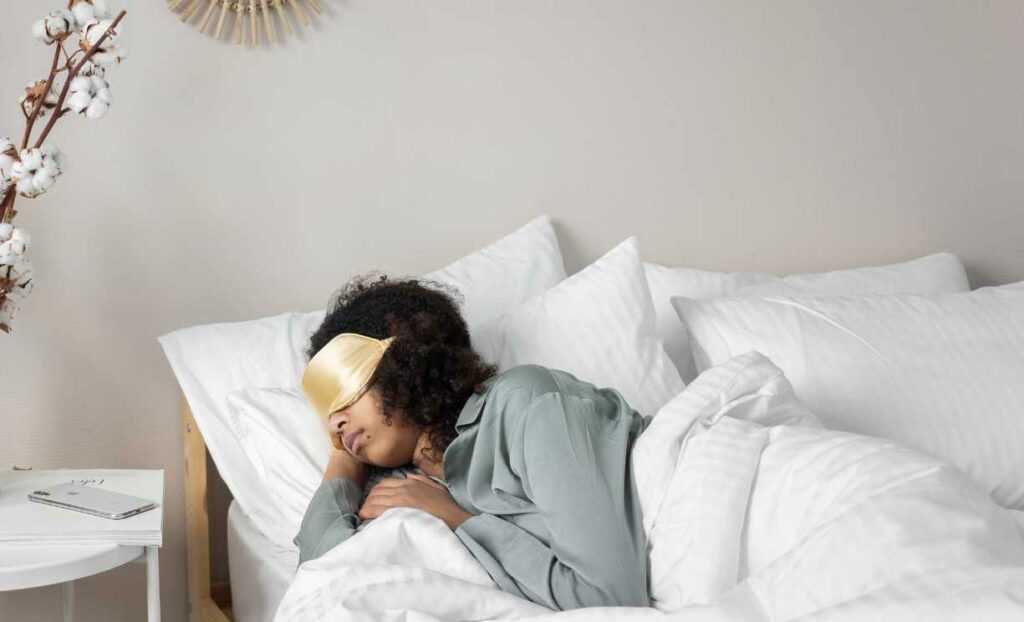Menopause is a transformative phase in a woman’s life, but it often brings along unwelcome companions, with insomnia topping the list. Sleep disturbances, characterized by difficulty falling asleep or staying asleep, can disrupt daily life and impact overall well-being. Fortunately, there are natural remedies for menopause and insomnia for restful nights.
Contents
Can Menopause Cause Insomnia?
Yes, menopause can indeed cause insomnia. As women go through menopause, the hormonal shifts, particularly the decrease in estrogen levels, can disrupt the natural sleep patterns. Hot flashes, night sweats, and mood swings associated with menopause can contribute to difficulty falling asleep or staying asleep. Additionally, changes in hormone levels can affect the body’s internal clock, making it more challenging to maintain a consistent sleep routine. The combination of physical discomfort and hormonal fluctuations can create a perfect storm for insomnia during menopause. Fortunately, understanding these factors and exploring various natural remedies and lifestyle adjustments can help women manage insomnia and promote better sleep during this phase of life.
How Is Insomnia Diagnosed?
Insomnia is typically diagnosed through a combination of medical history, sleep patterns assessment, and sometimes additional diagnostic tools. Here’s an overview of how insomnia is diagnosed:
- Clinical Assessment: A healthcare provider will begin by gathering a comprehensive medical history. This includes information about sleep patterns, daily routines, stress levels, and any underlying medical or psychological conditions. The patient’s reported symptoms are crucial.
- Sleep Diary: Patients may be asked to maintain a sleep diary for a certain period. This diary includes details such as bedtime, wake time, duration of sleep, and any factors that might influence sleep, like caffeine or alcohol intake.
- Physical Examination: A physical examination may be conducted to rule out any underlying medical conditions that could contribute to insomnia. Conditions such as chronic pain, respiratory issues, or hormonal imbalances may impact sleep.
- Psychological Assessment: Assessing the patient’s mental health is essential. Stress, anxiety, depression, or other psychological factors can contribute to insomnia. Understanding the patient’s emotional well-being is integral to the diagnostic process.
- Sleep Questionnaires: Various standardized questionnaires may be used to assess the severity and impact of insomnia. These questionnaires may cover aspects such as sleep quality, daytime functioning, and the presence of associated symptoms.
- Actigraphy: Actigraphy involves wearing a small device on the wrist that measures movement. It provides an objective assessment of sleep patterns over an extended period, offering insights into the patient’s sleep-wake cycles.
- Home Sleep Apnea Test (HSAT): If sleep apnea is suspected, a healthcare provider may recommend a home sleep apnea test. This involves wearing a portable device that monitors breathing patterns during sleep.
Natural Remedies For Menopausal Insomnia
Menopausal insomnia, characterized by sleep disturbances during the transition to menopause, can be a challenging companion on this transformative journey. However, there are natural remedies that offer solace and promote restful nights without resorting to pharmaceutical interventions.
Valerian Root
Valerian root is an herb that has been used for centuries to promote relaxation and improve sleep. It contains compounds that interact with the GABA receptors in the brain, leading to a calming effect. Valerian root supplements or tea can be integrated into your bedtime routine to ease the transition into sleep.
Melatonin Supplements
Melatonin is a hormone naturally produced by the pineal gland in response to darkness. However, hormonal fluctuations during menopause can disrupt its regular release. Melatonin supplements can help regulate the sleep-wake cycle, making them a useful tool for those experiencing difficulty falling asleep.
Herbal Teas
Chamomile and passionflower teas are well-known for their mild sedative properties. Chamomile contains apigenin, an antioxidant that binds to receptors in the brain, promoting relaxation. Passionflower is believed to enhance GABA levels, contributing to a calming effect. Sipping on these teas can be a soothing prelude to bedtime.
Magnesium-Rich Foods
Magnesium is a mineral that plays a role in muscle and nerve function. Incorporating magnesium-rich foods like almonds, spinach, and pumpkin seeds into your diet can support muscle relaxation and potentially improve sleep quality.
Evening Primrose Oil
Evening primrose oil contains gamma-linolenic acid, an essential fatty acid that may have anti-inflammatory and hormonal balancing effects. While more research is needed, some women find relief from menopausal symptoms, including insomnia, by adding evening primrose oil to their supplement routine.
Establishing a Relaxing Bedtime Routine
A consistent bedtime routine signals to your body that it’s time to wind down. Engage in activities that promote relaxation, such as reading a book, taking a warm bath, or practicing gentle stretches. Creating a tranquil atmosphere can prepare your mind for restful sleep.
Mind-Body Practices
Mindfulness meditation, deep breathing exercises, and progressive muscle relaxation are effective techniques for calming the mind and reducing stress. Incorporating these practices into your evening routine can create a sense of serenity, aiding in a smoother transition to sleep.
Acupuncture
Acupuncture involves the insertion of thin needles into specific points of the body. Some studies suggest that acupuncture may help regulate sleep patterns by influencing the release of neurotransmitters. While individual responses vary, some women find relief from menopausal insomnia through acupuncture.
Limiting Caffeine and Alcohol
Caffeine is a stimulant that can interfere with the ability to fall asleep. Alcohol, while initially sedative, can disrupt sleep patterns. Limiting the intake of caffeine and alcohol, especially in the hours leading up to bedtime, supports better sleep hygiene.
Cool and Comfortable Sleep Environment
Creating a conducive sleep environment is crucial for quality rest. Keep the bedroom cool, dark, and quiet. Invest in comfortable bedding and sleepwear to enhance overall comfort, promoting a more restful night.
Lifestyle Changes For Managing Menopausal Insomnia
Menopausal insomnia can be a challenging companion during this transformative phase of life. While natural remedies offer relief, lifestyle changes play a crucial role in creating an environment conducive to restful sleep. Consider embracing the following lifestyle adjustments for a more tranquil journey through menopause:
- Consistent Sleep Schedule: Maintain a regular sleep routine by going to bed and waking up at the same time every day, even on weekends. Consistency reinforces your body’s natural circadian rhythm, promoting better sleep quality.
- Create a Relaxing Bedtime Ritual: Establish a calming pre-sleep routine to signal to your body that it’s time to wind down. Engage in activities such as reading a book, taking a warm bath, or practicing gentle yoga stretches to relax your mind and body.
- Optimize Your Sleep Environment: Ensure your bedroom is a haven for rest. Keep the room cool, dark, and quiet. Invest in comfortable bedding and a supportive mattress to enhance overall comfort.
- Mindful Eating: Be mindful of your diet, especially in the evening. Avoid heavy meals and caffeine close to bedtime. Opt for sleep-friendly snacks such as nuts, seeds, or a small piece of turkey.
- Limit Screen Time Before Bed: The blue light emitted by screens can interfere with the production of the sleep-inducing hormone melatonin. Aim to reduce screen time at least an hour before bedtime to promote a more natural transition to sleep.
- Stress Management Techniques: Practice stress-reduction techniques such as mindfulness meditation, deep breathing exercises, or progressive muscle relaxation. These practices help calm the mind and reduce stress, making it easier to drift into a peaceful sleep.
- Cognitive-Behavioral Therapy for Insomnia (CBT-I): Consider CBT-I, a structured program that addresses thoughts, behaviors, and routines related to sleep. Working with a trained therapist can provide effective strategies for managing menopausal insomnia without medication.
Conclusion
In conclusion, navigating insomnia during the menopausal journey requires a holistic and personalized approach. While menopause may bring sleep challenges, there is a spectrum of natural remedies that can offer solace and contribute to restful nights. From herbal teas like chamomile to mindfulness practices and lifestyle adjustments, each remedy plays a role in creating a tranquil sleep environment.
Remember, the menopausal experience is unique to each individual, and so is the path to better sleep. By exploring and combining these natural remedies, women can reclaim their nights and approach this transformative phase with resilience, comfort, and a sense of empowerment.






I like this website it’s a master piece! Glad I observed this ohttps://69v.topn google.Blog range